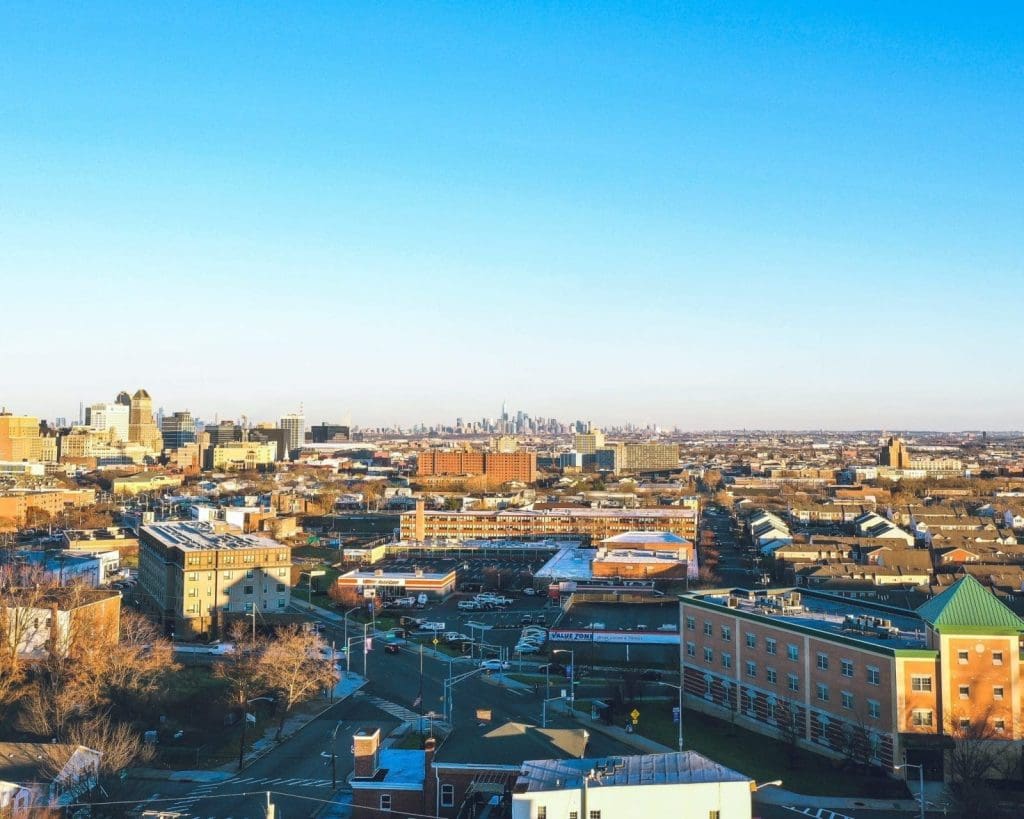Unilever’s 2021 Change Makers & Do-Gooders Community Grant was recently awarded to the catalyst organization Sustainable Jersey City (SJC). This $10,000 funding will be spent toward assessing the Urban Heat Island (UHI) effect and air quality across Jersey City, Elizabeth and Newark, New Jersey. Sustainable JC will begin its study this summer.
The UHI effect occurs when structures in an urbanized area absorb and re-emit the sun’s heat. This prompts the city to experience warmer temperatures than surrounding lower-density rural sites. Though SJC is concerned with direct heat-related health issues, the UHI effect also contributes to higher energy consumption. This poses a threat to sufficient water and air quality.
“The UHI Effect has serious health impacts, especially across Environmental Justice Communities. The data coming out of these studies will form the basis for municipal decision making and our own equity-focused climate action planning,” said SJC founder and chair Debra Italiano.
In partnership with CAPA Strategies, Groundwork Elizabeth, and South Ward Environmental Alliance (SWEA), the organization looks to “have a combination of legislative action by local government and independent steps taken by residents.” In conducting equity-focused climate action, communities within these municipalities may be able to survive the exhaustive heat.

Local city populations are more prone to heat-related health issues
Certain areas in Jersey City have shown a 16 to 21-degree increase in surface temperature due to the UHI effect. Cities such as this suffer the most during heat waves, as they find little to no relief. This can adversely and disproportionately affect members of compromised groups, such as the elderly, low-income, mobility-impaired and communities of color.
“Elizabeth and Newark are in the proximity of Newark Liberty International Airport and Port Newark—both major sources of pollution. Jersey City is also impacted by the cumulative toxic air quality, exacerbated by UHI conditions,” she continued. “All three municipalities suffer from public health issues, including heat-related illnesses and accentuated respiratory ailments. Jersey City has the highest rate of adult asthma in Hudson County, and is already seeing Ward F (Bergen-Lafayette) and Ward A (Greenville) being most impacted by the UHI Effect.”
Over the past 30 years, extreme heat has been shown to be the number one weather-related cause of mortality in the United States, according to a recently released statistic by the National Weather Service.
SJC’s response to UHI and climate change
SJC will work with community members and Unilever volunteers this summer to address this phenomenon within New Jersey. The data results will be used to develop actionable reports for municipal decision-makers as well as the general public.
On a much more global scale, SJC’s efforts dovetail the conversations centered around climate change. A recent report from the United States Environmental Protection Agency (EPA) indicates that extreme summer heat has become more frequent over the last 20 years, but can become magnified by the UHI effect.
The attempt to mitigate the UHI effect simultaneously minimizes climate change, and may very well improve air quality. A solution to urban heat islands may address the following: lower temperatures, electricity demand, air pollution, greenhouse gases and harmful health impacts, as concluded by the EPA.

“Once the studies are concluded, the collected data will be analyzed by our technology partners—CAPA Strategies will analyze the UHI data while Rutgers EOHSI will analyze the AQ data. After this, we would present the data in a visualization format and make it publicly available for residents and municipal decision-makers, which includes Jersey City’s Department of Health & Human Services,” explained Italiano.
The UHI effect deteriorates air and water quality in direct response to higher energy consumption. In partnership with Rutgers Environmental and Occupational Health Sciences Institute (EOHSI), SJC will maintain an air quality track record of the studied New Jersey cities.
The next steps for city residents
Experts from around the country presented data during the Urban Heat Island Mapping Campaign 2021 Media Roundtable on April 14. CAPA Strategies’ climate consultant Vivek Shandas explained the necessary steps for mitigating heat islands. He concludes that the implementation process varies, as it can be succeeded through gray, green and social strategies.
“Intuitively, a tree is going to take a considerable amount of time before shade is really a factor,” he offered. “Some communities are identifying air conditioning as an immediate strategy. While that has other implications, the idea of being able to reduce excess heat mortality and heat risk can be done in a very short time period … [compared to] land use planting processes.”
SJC suggests community members take action against UHI and sustain clean air in the following ways:
- Plant and protect trees on your street
Water them regularly, protect the bark from damage and keep the tree bed clean to allow for stormwater drainage—another concern with diminishing tree landscapes. - Invest in cool roofs
Property owners can even take it a step further and invest in cool roofs (reflective) or green roofs (rooftop vegetation) that reduce the UHI Effect in their homes. The NJDEP has good recommendations on the types of cool roofs available. - Join the conducting of these studies
Sign up to be a volunteer Citizen Scientist, and help DJC conduct these studies this summer in either of the three cities. They’re currently wrapping up the planning phase and will start recruiting volunteers soon.
To learn more about volunteering for this campaign, keep an eye out on @sustainablejc.
Main image by Emmanuel Ogbonnaya via Unsplash
Natalie is an editorial assistant at The Digest and a student at Ramapo College of New Jersey. She is a Bergen County native and has a particular interest in feature journalism. When she’s not writing, she’s driving around with her friends or at the nearest Dunkin’ Donuts.
- Natalie Tsurhttps://thedigestonline.com/author/ntsur/
- Natalie Tsurhttps://thedigestonline.com/author/ntsur/
- Natalie Tsurhttps://thedigestonline.com/author/ntsur/
- Natalie Tsurhttps://thedigestonline.com/author/ntsur/


